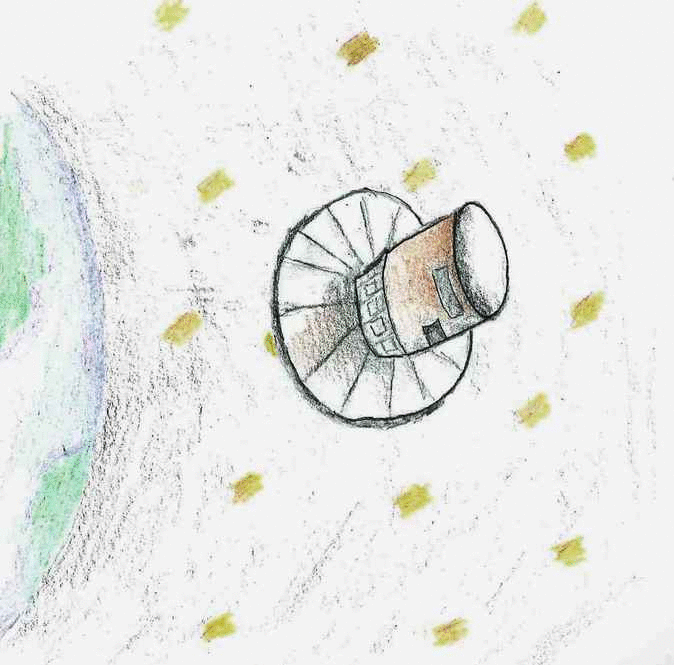The world is changing and the interconnected nature
of cultures and information is moving forward at a rapid pace. The need for
global perspectives and education that meets those global needs is particularly
important if difficult problems will be solved. Research by Gibson, et. al.
(2008) delves into fostering higher levels of global perspective within the
gifted population to ensure that there is a stream of leadership abilities
available for the future.
Globalization is seen as related to the
interconnectivity of trade, technology, and the environment (Adams &
Carfagna, 2006). The elements within the system begin to create higher levels
of influence on each other and new ways are thinking are needed to handle the
constant stream of information. The end effects of globalization include
interdependence, interconnectedness, and culture diversity (Anheier, et. al,
2001).
Global learning provides new opportunities for human
advancement and skill development. Business distribution networks and
government decisions no longer exist in a vacuum but have far reaching
implications. Through the use of distance education it is possible that
students can collaborate across cultural boarders to learn shared perspectives
and additional cultural awareness. This knowledge can be used in business,
governance, or general humanity.
Such cross-cultural education offers opportunities
to maximize critical thinking, intercultural communication competence,
collaboration, teamwork, reflective practices, dispositions and values (Roeper,
1988). These skills are sorely needed in society as the stakeholder pool
widens. Without the ability to understand information at a greater level,
society is doomed to repeat the same mistakes over and over.
The gifted population has the capacity to move out
of the pattern of events. They often worry about such issues as the
environment, trade, hunger, peace, disease and terrorism (Gibson, et. al, 2008).
They have the ability to understand these issues in greater levels and feel compassionate
about the consequences on others. They are motivated by understanding and have
the predispositions to engage in global learning due to their sensitivity and
tolerance of others (Van Tassel-Baska, 1998).
They are highly sensitive to moral issues and the rights of others in
global social issues (Clark, 2008).
The process of global learning is the creation of
global awareness related to various issues that impact the population. Global
learners have the capacity to understand the interconnectedness and
interdependence of the world. They must have effective reflection,
intrapersonal intelligence, and metacognitive abilities. In other words, they
must have the ability to reflect on choices and culture and understand their
overall implications.
The authors suggest that global learning is fostered
through either face-to-face cultural interactions or through online
collaborative projects. Students engage in online projects with others from
varying backgrounds and dispositions. Using gifted students from different
countries helps to ensure that the learning is not derailed by the limited
perspective of more ethnocentric members. As this population is more open to
understanding, empathizing, and helping they are a natural group to foster
global learning and citizenship.
This paper helps highlight the need to think beyond
local and national culture. As the world becomes more complex and business more
global in their operations, understanding the nuances of these changes will
become important for leadership. The gifted population often races ahead of the
general population and this makes them prime subjects for understanding the
changes that are likely to occur in the future as general awareness increases.
Whether one is situated on campus or in the buzz of cyber world, having
students interact with those of varying cultures makes graduates more prepared
to work in the global marketplace.
Adams, J. & Carfagna, A.
(2006). Comitif; of a^e in a fiíoha Üzed world: The next generation. Bloumsfield.
CT: Kutnarian Press.
Anheier, et. al. (2001 ). Introducing global civil society.
In H. K. Anheier. M. Glasius. »S: M. Kaldor (Eds.). Global civil society (pp. 3-22). New
York: Oxford University Press.
Clark, B. (2008). Growing up
gifted: Developing the potential of children at home and at .•school (7t.h
ed.). Upper Saddle River. NJ: Pear.son Education.
Gibson, et. al. (2004). Gaining multiple perspectives in
gifted education through global learning reflection. Australian
Journal of Gifted Education. 12, 34-40.
Gibson, et. al. (2008). Developing global awareness
and responsible world citizenship with global learning. Roeper Review, 30 (1).
Roeper. A. (1988). Should
educators of the gifted and talented be more eoncemed with world issues? Roeper
Review, ¡I, 12-13.
Van Tassel-Baska, J. (1998).
Appropriate curriculum for the talented learner. In J. Van Tassel-Baska (Ed.), Excellence
in educating gifted and talented ¡earners (pp. 339-361 ). Denver, CO: Love.
